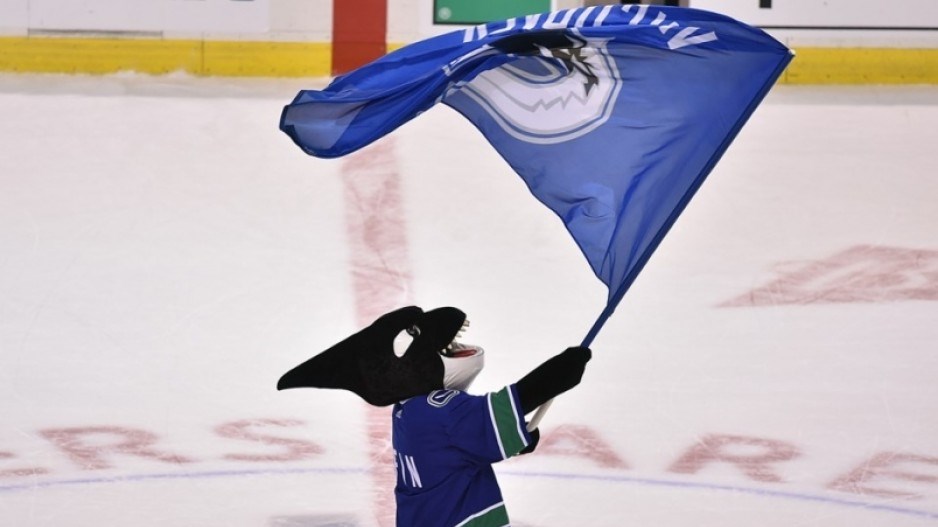It isn’t often – in fact, can anyone remember a time? – that Vancouver has had four ascendant sports franchises.
In fact, can anyone not remember a time when the baseball Canadians were in a drought, the soccer Whitecaps were shooting blanks, the football Lions were fumbling, and hockey’s Canucks were shambolic?
But late 2023 is different. The local sports business is suddenly surging.
The C’s recently won their championship, the Whitecaps made (but were eliminated Sunday from) the playoffs, the Lions are in this coming weekend’s Western Conference final and the Canucks are off to their best start in two decades.
Sure, every sports market loves a winner, but winning teams are not only great for the city’s self-esteem but are significant elixirs for the economy well beyond the franchises themselves. The adjacent sports business beneficiaries are plentiful: restaurants with big-screen TVs, merchandise stores and sites, taxis and ride apps, food delivery platforms and liquor stores, among other things. Success brings energy to a community and forces sports radio banter to shed chronic pessimism.
The marvellous business story with each of these teams is how they navigate their business contexts, none of them extravagant – that’s left to the National Football League, Major League Baseball and National Basketball Association.
The Canadians are a minor-league team on a grapefruit diet that emphasizes a fun fan experience on a rigorous budget. This year it happened to have a batch of dominant early-stage prospects to groom for the parent Toronto Blue Jays, and it captured its fifth Northwest League championship. The team is under new and experienced American ownership after local businessmen Jake Kerr and Jeff Mooney revitalized it, so steady hands should prevail in what is considered one of minor league baseball’s best organizations.
It's at the major-league level that sustaining success requires answers to big questions.
The Whitecaps are a kind of Moneyball team, fetching available players to fit within a payroll in the league’s lower one-third. Major League Soccer teams had a salary cap improvised when David Beckham came from England a decade ago to play in Los Angeles: US$5.21 million, but with up to three Designated Players they can pay whatever they wish and only have them count US$651,000 against the cap. Thus we now have Lionel Messi playing out his career in Miami.
Whitecaps are loathe to go down that star-studded road, somewhat to the fan base’s chagrin. When it sold Alphonso Davies to Bayern Munich five years ago in what now seems a bargain $22 million (and a royalty if he’s sold again), it was reasonable to expect that reasonable expenditures would follow. Instead, it has stuck with a frugal fiscal framework to overhaul its lineup, and this season was fortunate enough for it to pay dividends.
But with Apple TV+ pumping US$250 million each year now into the league, the pressure will be on every franchise to open the wallets to provide a better calibre of the so-named Beautiful Game. It would help if along the way the North American home and stadium viewer could be treated to refereeing not so sub-competent, nor the frequent flopping – the gravitational pull to the ground never seems stronger than in the penalty zone. The league is working on it, even if the Whitecaps could say Sunday it had not happened soon enough.
The Lions were a reclamation mission when industrialist Amar Doman bought the team two years ago, and it has been a Lazarus experience. Doman has shrewdly fished where the fish are in surrounding communities in minor and high school programs, instead of trying only to land big-city backers into the boat. He also appears to be the owner making the greatest local major-league progress in understanding that fans need entertainment during the interminable commercial breaks and intermissions.
This year the team survived the loss of an emerging star quarterback to the NFL and steadily regenerated fan support as it climbed the standings. It has to do so while living within a $5.45 million salary cap for 56 players; most NFL franchises would have starting lineups all earning that. A Grey Cup is possible, but only a true believer would think it probable – Winnipeg and likely Toronto are in the way.
Yet the Lions and Whitecaps each drew 30,000-plus in playoff attendance over the weekend, suggesting that fan support can further emerge.
The Canucks, meanwhile, have the hockey experts scratching their heads because good things were not supposed to happen this soon. When it was put under new management nearly three years ago, it inherited a salary composition that left little room to breathe. It had to spend an NHL record amount to buy out a contract this season to free some space to better fill the bottom half of its lineup. But this is still a team substantially hampered, even painted into a corner or pressed into the ceiling, if it intends to improve under an US$83.5 million cap on salaries.
Its hot start appears to be an out-of-body experience by players of their tough-love coach, Rick Tocchet, who earned his keep as a NHLer by never dialing it back and now seems to have 18 skating clones. Who else but Tocchet would find fault with their best player who had just scored a hat trick?
The season is young, the physical demands on the players may wear them out, and the team still needs a few pieces to contend. But for the time being the market’s largest franchise is alive and getting well. It isn’t time to map out the Stanley Cup parade route quite yet, but a home playoff game for the first time in nine years appears viable in 2024.
Happier times are here.
Kirk LaPointe is publisher and executive editor of Business in Vancouver and vice-president, editorial, of Glacier Media.




